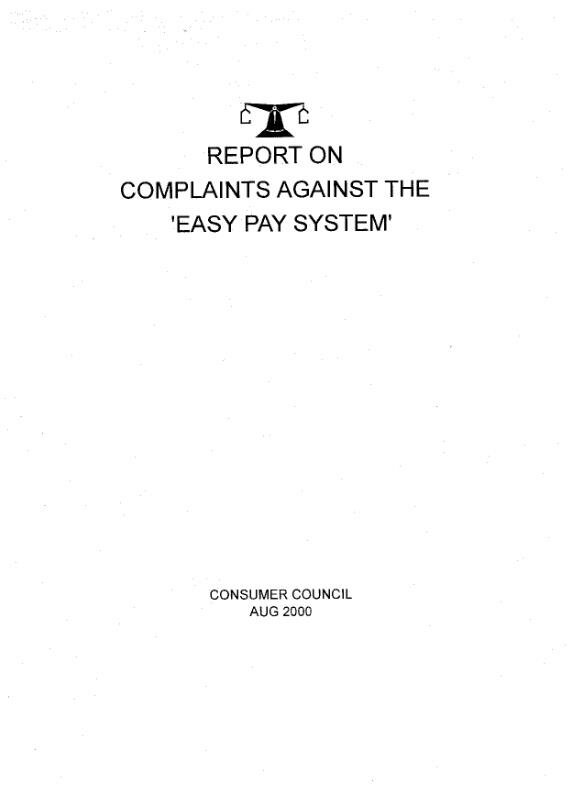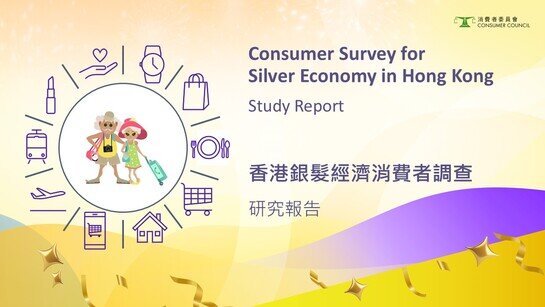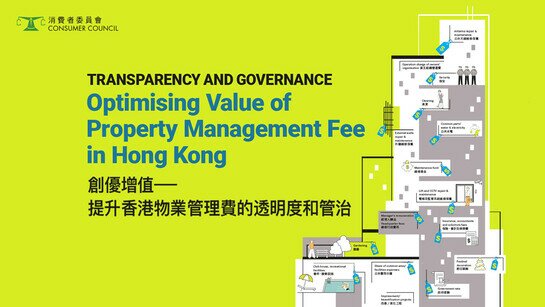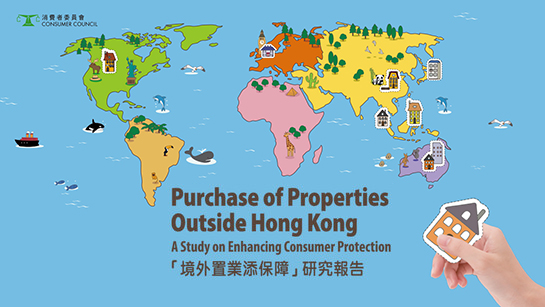
Summary
- The Consumer Council has conducted inquiries into a complaint by certain merchants in Hong Kong, concerning the transaction fee that merchants have to pay in using the debit card network payment system known as 'Easy Pay System' (EPS), which is provided by the Electronic Payment Services Company (Hong Kong) Limited (EPSCO).
- The complainants alleged that EPSCO is a 'monopoly' service provider and is taking advantage of its market power to levy unreasonable transaction charges from the complainants for using the EPS system. The complaints have two dimensions. First, some complainants had originally negotiated a flat fee of $2.00 per transaction regardless of the amount, and EPSCO had moved to change that to a percentage based fee up to 0.75% calculated on the amount of the transaction. Second, there were complaints generally by merchants regarding the use by EPSCO of percentage based transaction fees rather than flat fees.
- Hong Kong is a market economy. The process of competition is the means by which the objectives of economic efficiency and the free flow of trade are to be achieved. The intention behind the Council's report in this matter is not to consider the quantum of what a reasonable transaction fee should be, as the Council does not have access to commercially sensitive information and comprehensive data to do so. Its intention is to consider, on the basis of prima facie evidence provided to the Council by the complainants and EPSCO, two issues: whether there has been a lack of competition arising from market failure in the delivery of debit card network payment services to merchants; and what are the implications for the economy and ultimate consumer welfare. In effect, the merchants are the 'intermediate consumers' in this matter and the issue is whether they have viable competitive choices available to them. The Council's report consolidates the limited information that the Council has been able to obtain from the industry, including the complainants and EPSCO, and from research on money transmission systems overseas.
- The Council's ultimate concern with this matter is that merchants that have to pay for the debit card network service through transaction fees, have to recover their costs of operation through prices charged to consumers. As such, to reduce the inflationary effect of such costs, it should be expected that the supply of these services to merchants would be provided at the lowest possible charges. Ideally it should be under competitive market conditions, in much the same way that merchants expect to obtain other inputs for the efficient operation of their business.
- Moreover, there is a wider issue at stake for the economy as a whole. Electronic network payment systems can be an efficient means of providing retail payment services; when compared with traditional alternatives such as cash, or cheque. In these circumstances, it would be expected that the relevant authorities would encourage the efficient supply and use of electronic network payment systems in Hong Kong.
- In pioneering any such system, initial market power might be natural as an incentive for a risky venture. However, the market power should not be allowed to develop to the extent that competition is stifled, or the pressure to enhance efficiency is artificially reduced or eliminated.
EPS
- EPS is operated by the Electronic Payment Services Company (Hong Kong) Limited (EPSCO) which is a consortium of banks in Hong Kong, including the major note-issuing banks, which issue EPS debit cards to consumers. EPSCO has stated that it wants to bring transaction fee structures for debit cards into line with all merchants, to redress a historical anomaly where some merchants had, during the early stages of the EPS' development, negotiated flat rate transaction fees.
- According to the complainants flat fees other than those they had been paying were also still being offered by EPSCO to other merchants. However, citing commercial confidentiality, EPSCO declined to provide the Council with information that would indicate the range of transaction fees that have been negotiated with different merchants. EPSCO stated that in any event, if the complainants who approached the Council are dissatisfied with the rise in their transaction fees, they could use substitutes such as cash, cheque or credit card.
Complaints
- The complainants who approached the Council stated that the alternatives suggested by EPSCO are not viable substitutes and that EPSCO is acting as a 'monopoly' and misusing its market power to extract unreasonable fees from merchants.
- Some merchants were of the opinion that the EPS terminals at merchants' premises were more or less automatic teller machines (ATMs). Moreover, unlike credit cards, where the cost of operation includes the cost of credit to banks, the cost of the EPS service was largely fixed, and was not affected by the size of the transaction. In these circumstances it was felt that if transaction fees were to be charged, a fixed transaction fee was more appropriate.
- In the Council's opinion, if transaction fees for merchants are to be charged (bearing in mind that 'excessive' transaction fees could act to impede growth of the system by merchants) the matter comes down to the issue of choice. In particular whether merchants have competitive choices available to them for the product, and what competitive pressures exist to determine what the level of the fees should be.
Competition in the relevant market
- The question as to whether EPSCO has market power and whether it is using that power to levy fees on merchants requires an assessment of the relevant market from the demand and from the supply side, with reference to relevant product, geographic and functional dimensions. Defining the relevant market and evaluating the degree of power in that market are in effect part of the same process. The objective of defining a relevant market is to determine the boundaries within which effective competition occurs and where market power is allegedly being misused. From the demand side, merchants indicated that to provide a competitive service, various payment options had to be made available. Notwithstanding their assertions, it can be generally observed that there are different aspects to the various payment options available that suggest they may not be direct substitutes given the different operational patterns of various industries. For example:
- transaction amounts can be above the maximum value available for stored value cards, particularly for high cost items such as electrical equipment, furniture and jewellery;
- it can be impractical for customers to use cash, because of security reasons;
- cheques can be considered too risky for some merchants, because of the possibility of default; and
- credit card transaction fees, typically involving a 2% to 4% charge on the merchants, would substantially diminish the margins that some merchants work on. This could be a particular concern in industries where competition has squeezed margins to very low levels.
Debit cards on the other hand do not display the above concerns. Hence, competitive industries that typically involve large transaction amounts and are adverse to default risk may prefer debit cards as the payment method. In return, they may provide discount incentives to consumers. Given the high level of complaints by certain merchants regarding the EPS service, this could well be the case in those sectors where the complainants operate.
- Notwithstanding the above observations, a common method of more rigorously determining the boundaries of a relevant market and the existence of market power, used by competition authorities in jurisdictions that have competition laws, is to test the point at which consumers (in this case merchants) react to price rises by switching from one service to another. It stands to reason that not all consumers will be willing to switch products or find alternatives when prices are raised. However, in antitrust analysis it is sufficient that enough customers are willing to make such substitutions to affect the conduct of sellers in the market.
- In increasing the rate from a $2.00 per transaction to 0.75% on transaction value, EPSCO's increase in price was, according to some users, as much as 11 times the fee under the former charging scale. This is obviously a significant price increase for the EPS service and an indication of market power. Moreover, survey information provided to the Council, and submissions by merchant associations indicated that a significant number of merchants, notably certain small to medium enterprises who felt compelled by market conditions to use the payment system, had little choice but to accept the price increase. The reason for this could be that their profit margins were already very low because of strong competition, and after the discounts offered to consumers using EPS. In these circumstances it could be assumed that few of them would wish to shift to other payment methods that might mean a hike in prices or charges, or a further squeeze in margins, e.g. payments by credit cards.
- It has been difficult for the Council to verify the validity of that reason, which would require very detailed industrial information and statistics. It would also require determining the extent to which different transaction fees have been offered in the market, who the recipients of those fees are, and the results of any negotiations between EPSCO and certain merchants. Information of this sort would assist in ascertaining the full extent of demand elasticity by particular merchants when faced with a price increase by EPSCO. However, anecdotal evidence by both the Hong Kong Jewelers and Goldsmiths Association and the Travel Industry Council was that if their members could not prevent EPSCO from imposing the new charge, they had few options but to comply. EPSCO itself stated that over 90% of affected merchants had agreed to the new fee structure. Some collective boycotts of the EPS system have been organised or planned by some merchants, as a protest against EPSCO's actions. Whether the action will secure any change for some merchants on the transaction fee remains to be seen. However, the Council considers that in a market economy, the means by which optimal supply prices are achieved should ideally be through the interplay of competitive forces by market participants negotiating on the strengths of their relative economic efficiencies.
- Whether merchants actually "agreed" with the increase (as stated by EPSCO) is a moot point. However, the fact that EPSCO was in a position where it could seek such an increase is in itself the important fact to note when considering, on the demand side, whether EPSCO has market power. While this fact gives important clues, resolving the issue of market power also rests with an analysis of the supply side, and the important issue of barriers to entry.
- From the supply side, the Council doubts there is much likelihood of a viable competitor emerging as a separate supplier of a debit card network payment system, to compete against the major banks who are in the EPSCO consortium. Experience from overseas indicates that the incumbency of an established network payment system is a substantial hurdle for new entrants to overcome.
- In effect, it appears to the Council that rather than engage in the costly and risky endeavour of competing with each other in the provision of a debit card network service, potential competitors in the supply of debit card networks i.e. Hong Kong's major banks, have joined together to form one debit card network payment system. Such a co-operative arrangement between competitors, who are fixing prices (merchants' transaction fees) between each other, raises a concern that the aggregation will result in the creation of substantial market power. The concern on competition is particularly the case when the competitors include thirty five banks that make up a significant portion of the Hong Kong banking industry. This concern is increased when it is recognised that the same entities that make up EPSCO have commercial interests, to varying degrees, across the range of other payment systems available in Hong Kong (see Appendix 1 ) that the EPSCO members claim are direct competitive substitutes for the EPSCO product.
- If EPSCO is facing direct competition from other payment systems in setting its transaction fees for merchants, it needs to have regard to the actual and potential competition that exists for its product from other service providers. Moreover, if the EPSCO service is indeed facing competition, in the usual sense of the word, it can be assumed that those offering the competing service would be attempting to take market share away from EPSCO's service and vice versa. For example, at the very least, because the cost of the service would be a major factor for merchants, it would be expected that the price for the EPS service should not be higher than that for competing services. By the same token if EPSCO was competing with other payment service providers, it would be expected that, in order to maximise its return, it would take advantage of any lower operating costs it has for its service, (in comparison to the best price that its competitors could offer) in order to take market share away from those competitors. The fact that EPSCO was in a position where it could unilaterally impose a substantial fee increase, simply in furtherance of a stated policy to bring fees into line with others, is a strong indication that it was not facing the discipline of a competitive market in setting merchants' transaction fees. This fact, coupled with the barriers to entry posed by the 'network effect' of EPSCO's incumbency, leads the Council to believe that EPSCO was, and in the absence of information to the contrary, currently is in a position of substantial market power when setting merchant transaction fees.
Detriments to consumer welfare
- The means by which costs and fees are determined between a service provider with substantial market power such as EPSCO, and a purchaser of its services, i.e. merchants, should not be simply taken on trust. Economic efficiency cannot be enhanced when an entity with substantial market power, derived from an aggregation of competitors, is able to extract the returns it deems fit.
- In contrast, the process of negotiating merchant transaction fees with banks for a credit card service is significantly different to that of negotiating fees for an EPS debit card service. The fee for using the EPS service is only negotiable between the merchant and EPSCO; which is a consortium of the banks that also offer credit card services. The fee paid by merchants to issuing banks for credit cards is negotiable between those individual banks that also issue EPS debit cards. The Council understands that transaction fees for credit card usage currently fall between 2% to 4%. Transaction fees for credit cards are therefore determined to some extent through the competitive pressures that individual banks are under when supplying credit card services to merchants. The same competitive pressures do not apply, however, for debit card services.
- High transaction fees raise the cost to merchants of card based payments which can reduce the acceptance of more efficient payment methods. High transaction fees also have an inflationary effect on retail prices, as no matter how competitive their industry is, retailers will eventually have to pass on the inflated costs to customers. This in turn leads to a reduction in output and economic welfare. There is a strong assumption to be drawn that if card issuers agree amongst each other on the way in which they should recover costs for a payment system, that ultimately benefits their commercial interests, this will weaken the incentive for card issuers to cut costs through greater efficiency. Inflated transaction fees protect inefficient suppliers from the full force of competition and have detrimental consequences for the economy as a whole.
Overseas experience
- Similar network payment systems operate in comparable advanced economies overseas, and the Council has briefly examined the circumstances that exist in the United States, Canada, the UK and Australia. In those jurisdictions, because the networks are co-operative arrangements between competitors, they are, in the first instance, under the scrutiny of competition authorities that administer general competition law. In addition, some jurisdictions currently have, or are contemplating specialised payment systems control authorities that oversee the operations of such systems because of their importance to the economy.
- There are also different approaches to recovering costs and applying fees. In Australia for example, there is competition between banks within one collective debit card network system for the custom of merchants, and thereby competitive choices as to fee levels and methods of calculation. Where transaction fees are paid by merchants for accepting debit cards issued by network members, they are almost always 'flat fees' i.e. there are very few percentage transaction fees paid by merchants. For a number of large merchants, such as retail chains, network members actually compete to pay those merchants to use the payment system, rather than the reverse.
The need for competition
- The aggregation of major Hong Kong banks into the one single debit card network supplier, has denied merchants the opportunity to take advantage of the rivalry that would be expected to arise between those banks, for the competitive supply of debit card services to merchants. This aggregation has apparently resulted in a situation where EPSCO does not face any serious pressure from other existing or potential competitors, in the price levels that it sets for the supply of debit card network services to merchants. Because the member banks of EPSCO have agreed not to compete with each other on debit card transaction fee levels for merchants, and because they are also involved, to varying degrees, in the supply of other payment options, there is little opportunity for competition to play its part in:
- determining appropriate fee levels; and
- offering choices as to fee calculation.
- The Council considers that if transaction fees are to be charged for merchants to provide the debit card payment system, competition between service providers should be utilised as much as possible to exert downward pressure on the fee levels and to offer competitive choices to merchants. The costs that merchants are required to bear will inevitably be passed on to consumers. Competition should be allowed to play its part in achieving the objective of enhancing economic efficiency. This view reflects the Hong Kong Government's commitment to using competition as a means of achieving the objective of economic efficiency as noted in its May 1998 Statement on Competition Policy.
- While the competitive process should be promoted and utilised, it is also clear to the Council, from the nature of network payment systems, that co-operation is required to some extent between competing service providers on how the network payment systems are to be operated. However, this requires that some form of accountability and transparency is provided that ensures consumers of the service have trust in the way in which the co-operative scheme is operated.
Council recommendations
- Having regard to the above, the Council puts forward the following recommendations.
Recommendation 1: There should be competition between network members.
- The Council considers that as a matter of principle, competition between service providers should be utilised as much as possible to determine an appropriate level of fees in payment networks, and to offer competitive choices to merchants. Accordingly, it considers that if merchants are to be charged network transaction fees, EPSCO's rules should allow for member banks to compete with each other on the quantum of merchant transaction fees and the method by which the fees can be calculated.
Recommendation 2: There is a need for transparency and accountability.
- Given the prima facie indication of market power through the aggregation of competitors in the provision of the EPS network payment system, and in the absence of legislative safeguards to counter that power (by way of a general or finance sector competition law) the Council considers there should be an appropriate degree of accountability in the operation of the debit card network payment system operated by EPSCO. In view of the importance of having efficient online network payment systems to the economy, and Hong Kong's ambitions to fully embrace innovative electronic information technology, consideration should also be given to providing a similar degree of accountability for other network payment systems.
- The issues that need to be addressed to ensure accountability are:
- transparency as to the costs of operation for the systems; and
- representation of the interests of stakeholders (i.e. not only financial institutions, but merchants, consumers and government) in the decision making processes that control the development and operation of the systems.
- Competition between network members may introduce a certain degree of accountability. However, that fact alone would not address the important issue of transparency. A code of practice developed by the network members, with government support and oversight (in the absence of a general competition law, which is the Council's first preference) would seem to be an appropriate model to consider.
Government response
- During the course of preparing this report, the Council held discussions with the Hong Kong Monetary Authority (HKMA) and provided a preliminary draft for the HKMA's consideration. The Council made clear to the HKMA the limitations of the data and information that it had been able to obtain for its study. The HKMA subsequently announced on 1 August 2000 that it would conduct a comprehensive review of retail payment services in Hong Kong. Among the terms of reference for the review was that the HKMA would "consider the degree of competition that exists in the provision of retail payment services and to assess whether any deficiencies in competition that are identified operate significantly against the public interest".
- The Council welcomes the HKMA's initiative and trusts this report will assist it in its task.











